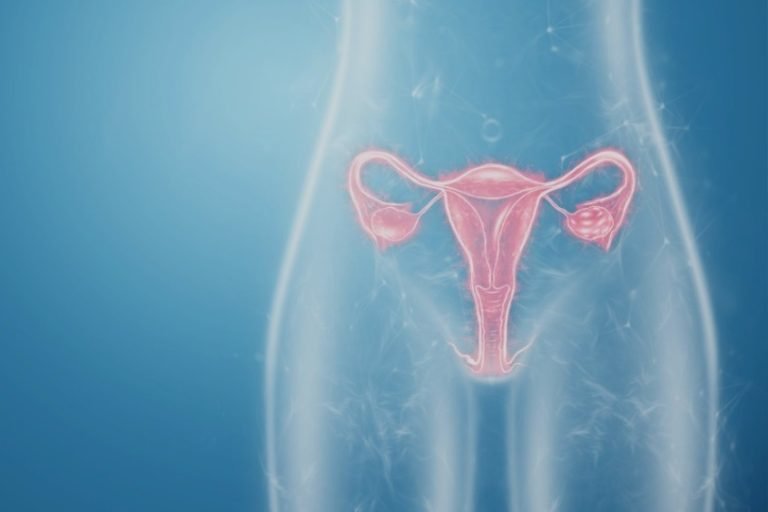Browsing: Women Health

The page provides quick access to a list of common diseases, syndromes, health conditions, and other topics of health importance pertaining to women’s health. The list is organized alphabetically. Links are provided to respective diseases sections that serve as a comprehensive and ultimate guide about the disease or health condition.
A gynecological disorder involves damage or risk to any female reproduction organ, which includes the abdominal and pelvic area, i.e., ovaries, uterus, fallopian tubes, vagina, vulva and breasts. Some of these disorders can even affect the proper functioning of the reproductive system and may create difficulty during pregnancy or child birth.
Healthcare professionals believe that every woman may suffer from one or another type of gynecological condition at some point in their life. In the past few years, the incidence of few gynecological disorders has sternly increased such as endometriosis, uterine fibroids and breast cancer. They have not only affected adult women, but teenage girls also have shown high incidence of certain gynecological diseases.
From puberty till menopause, a woman’s reproductive organs are continuously changing due to sexual activity, pregnancy and aging. These changes occur due to variation in hormonal levels in the body. An injury or a disease can also affect your reproductive system, leading to a gynecological disorder.
Common gynecological disorders include dysmenorrhea, vulvodynia, chronic pelvic pain, breast cancer, polycystic ovary syndrome, endometriosis, uterine fibroids, vaginitis and menstrual cramps.
Coping with a Negative Pregnancy Test: Emotional Toll and Strategies” – Discover effective strategies for coping with a negative pregnancy test, from managing emotions to cultivating a positive mindset.
False positive pregnancy tests can cause unnecessary anxiety and emotional distress. Causes include medication interference, user error, and defective tests. Solutions include clear instructions, proper storage, more reliable tests, and awareness campaigns to educate the public on the issue.
Ovulation and Conception: Understanding the Timing of Intercourse
Understanding ovulation and timing intercourse correctly can increase the chances of conception while reducing the risk of miscarriage. Debunking common misconceptions and myths with scientific evidence and research is crucial to avoiding unnecessary stress and anxiety for couples trying to conceive. Various methods can track ovulation and properly time intercourse for success.
Hormones play a significant role in the fluctuations of sex drive throughout the menstrual cycle. Understanding the impact of hormones on libido can help women take control of their sexual health. By recognizing the changes that occur and implementing coping strategies, women can potentially enhance their sexual experience.
Amenorrhea is a condition that causes absent periods, with physical and psychological effects such as infertility and depression. Treatments include hormone therapy, surgery, and fertility preservation. Prevent amenorrhea by maintaining a healthy weight, regular exercise, stress management, and regular gynecological check-ups.
Ovulation and Fertility: How to Increase Your Chances of Conceiving
Explores strategies to increase the chances of conceiving by focusing on ovulation and fertility. It covers topics such as identifying fertile days, lifestyle choices affecting fertility, tracking ovulation, and debunking common myths.
Menstrual Cycle and Exercise: How Your Period Affects Your Workouts
Understanding how your menstrual cycle affects your workouts is essential for women’s health and fitness. Adjusting your exercise routine during your period and maintaining proper nutrition and hydration can alleviate menstrual symptoms and promote overall well-being. Breaking down societal taboos and promoting open conversations about menstrual health is also crucial.
Ovulation Predictor Kits (OPKs) are tools that can significantly increase the chances of getting pregnant. They work by detecting the luteinizing hormone (LH) surge that precedes ovulation, helping women identify their most fertile days. There are several types of OPKs available, and following tips such as starting testing early, testing consistently, and confirming with other methods can maximize their effectiveness.
Pregnancy Complications: Common Issues to Watch for in Early Pregnancy
Early detection and management of pregnancy complications are crucial for the health of both the mother and the baby. Common pregnancy complications to watch for in early pregnancy include miscarriage, ectopic pregnancy, gestational diabetes, and pre-eclampsia. Women should prioritize regular prenatal care and work closely with their healthcare providers to ensure a safe and healthy pregnancy.
Female infertility affects 10-15% of reproductive age couples. It’s caused by ovulatory disorders, uterine/cervical abnormalities, endometriosis, age, lifestyle factors, genetic factors, and medical conditions. Diagnosis involves a medical history, physical examination, hormone/ovulation tests, imaging, laparoscopy, and hysteroscopy. It’s a complex issue that affects both genders, but women are often the focus of investigations and treatments.













